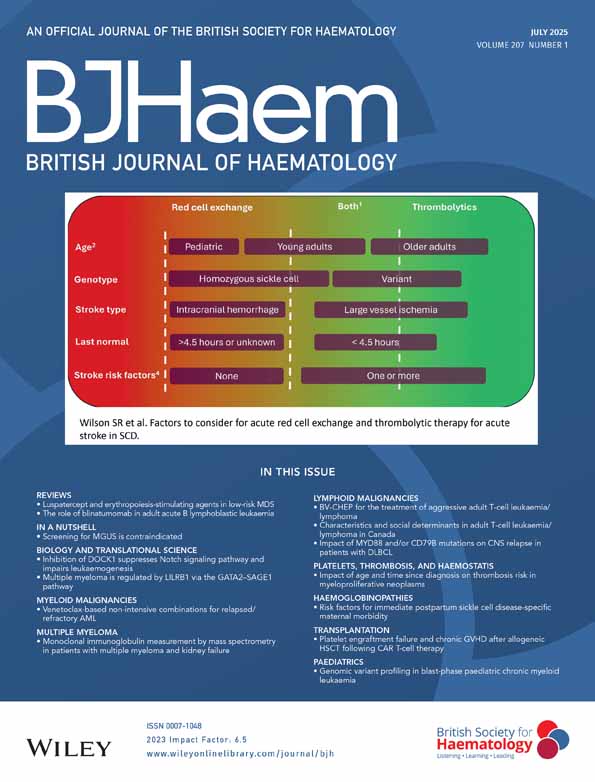The eosinophil granule proteins in serum, but not the oxidative metabolism of the blood eosinophils, are increased in cancer
Abstract
The eosinophil activity in patients with renal cell adenocarcinoma during treatment with interleukin-2 (IL-2) and interferon-alpha (IFN-α) was reduced when measured as zymosan-induced lucigenin-enhanced chemiluminescence (CL). Eosinophil cationic protein (ECP), eosinophil peroxidase (EPO) and eosinophil protein-X (EPX) were significantly elevated before and during treatment (P < 0.001) when compared with the controls. ECP and EPO were unaffected by the treatment whereas it induced an increased EPX level compared with values measured before treatment (P < 0.05). The propensity of eosinophils to secrete their granule proteins may reflect the fact that eosinophils in cancer patients have an enhanced capacity to kill cancer cells.




